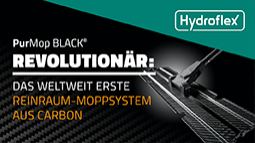DSM Sinochem Pharmaceuticals to boost manufacturing capacity at Dutch plant
Increased production will meet growing demand for sustainable antibiotics
Building on its commitment to producing antibiotics sustainably in the fight against antimicrobial resistance (AMR), DSM Sinochem Pharmaceuticals (DSP) has announced the expansion of its manufacturing facility in Delft, the Netherlands. The company’s aim with this investment is to meet the growing demand for sustainably produced 7-ADCA, the key intermediate for cephalosporin active pharmaceutical ingredients.
A new fermenter will be added to the DSP site in Delft, the Netherlands, which will make use of leading-edge technology that is energy efficient and environmentally friendly. DSP expects the new extension to the plant to be fully operational in the last quarter of 2017.
The Delft site produces 7-ADCA, the key intermediate for making the company’s sustainable cephalosporin APIs including cephalexin, cefadroxil and cefradine. DSP is the only remaining producer of this intermediate in the Western hemisphere. In the early 2000s, the company revolutionized the industry by introducing a new breakthrough process for the sustainable production of high-quality 7-ADCA. So far this process, based on proprietary technology, is the only one of its kind for manufacturing 7-ADCA worldwide.
Irresponsible manufacturing has been recognized as one of the key causes of AMR due to the uncontrolled release of antibiotics into the environment. In particular, waterways downstream of production facilities may contain significant concentrations of antimicrobial activity, and risk becoming breeding grounds for resistance.
As a leader in the sustainable production of β-lactam antibiotics, DSP has implemented the cleanest production technology available and installed dedicated wastewater treatment plants. These operate all year round as an integral part of DSP’s manufacturing process at Delft and all other sites, in combination with the testing of effluents for antimicrobial activity. In response to the threat of antimicrobial resistance (AMR), the company is committed to minimizing the release of antimicrobial active ingredients into the environment.
In addition to improving its own production processes, DSP actively collaborates with industry partners, public and private stakeholders, associations, health professionals and regulators – such as the United Nations, World Health Organization, Access to Medicines Foundation and PSCI - to clean up the supply chains. The company has been one of the driving forces in establishing the United Nations Industry Roadmap for Progress on Combating AMR, signed by 13 leading pharmaceutical companies in September 2016, and particularly underwrites the commitment to reduce the impact that the production of antibiotics has on the environment.
In the same year, DSP celebrated the significant milestone of 15 years of green production of 7-ADCA at its Delft site, which has resulted in more than 2.5 billion cephalosporin patient treatments while significantly reducing CO2 emissions, as well as preventing the release of antimicrobial active ingredients into the environment.
Frans Vlaar, Business Unit Director Europe America at DSP said: “Our sustainable and environmentally friendly manufacturing process not only results in a higher 7-ADCA product quality and significant reduction of the product carbon footprint, but also prevents unnecessary active antimicrobial discharge. It is highly encouraging to see that our customers increasingly recognize these benefits linked to our 7-ADCA product and manufacturing process. Thanks to the state-of-the-art techniques and processes that we apply and continuously develop further, we are able to maintain our strong position in this highly competitive industry.”
DSM Sinochem Pharmaceuticals Netherlands B.V.
2613 AX Delft
Netherlands








